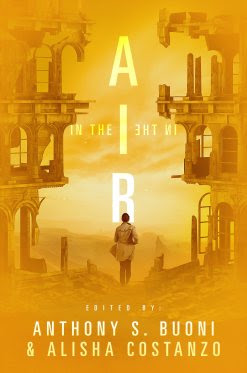▼
▼
Monday, 29 July 2019
Wednesday, 24 July 2019
An interview with Bill Davidson
Bill Davidson's writing first appeared in Dark Lane Anthology Vol.5. His short story A Brief Moment of Rage will be reprinted in Ellen Datlow's forthcoming 'The Best Horror of the Year Volume Eleven'. Visit his website www.billdavidsonwriting.com.
Q: What are your working methods? Do you sit down every day to write? Do you have a designated place to work?
A: I maintain a high degree inconsistency, most of the time
anyway. I write most days- sometimes only a few hundred words, other times it can
be several thousands. I get an idea and then wander about the place falling
over dogs and mumbling to myself about elves or something until I have enough to
start my story. Once I’m going, I’ve got to get it out there and write for many
hours in a day, although seldom in a single sitting. I have to get up and do
something else, before I can figure out what I’ve just done wrong, or what
should happen next. I’m not much of a plotter.
I write mainly at home, but do enjoy occasionally sitting in
the library or a café.
Q:Tell us about one of your favourite short stories and why
you like it (not one of your own).
A: I recently read 20th Century Ghosts by Joe Hill
and one story has really stayed with me. It’s called Pop Art. This sounds
absurd, but it’s about a boy, Arthur, who is inflatable (and very puncturable)
living in the same dangerous world as the rest of us. I read the whole story fretting
over someone who is, in effect, a balloon, and his friend, who isn’t. It’s a
fantastic tale about friendship and humanity.
Q: Tell us about one of your favourite short stories (done by
you).
A: Bugger, this is difficult. I’m going to go for Childe Abbas,
alternatively titled The Little Town in England Childe Abbas
Q: Where do your ideas come from? Do you go looking for ideas – for example by
brainstorming, or do you wait for inspiration?
A: I’m lucky in that things constantly occur to me without having
to purposefully do something to form an idea. I’m a naturally dreamy person and
I’m always seeing things, or hearing things, and thinking, what if? I write
down the initial idea and sometimes it turns into something worth pursuing - other
times I have to admit it’s crap. Or
already written.
Q: Are
you a full-time writer? If you have another job, what is it and would you like
to become a full-time writer if you could?
A: I
didn’t start writing in earnest until I took early retirement from local
government just under three years ago, managing everything from waste to
housing. Before that, I kind of dabbled, but what I produced wasn’t too good,
and I went into decade-long sulks when my work wasn’t published instantly. I simply
didn’t have the head space to do a demanding job and produce good writing, so I
take my hat off to the many people who can manage that.
For the
past year, I’ve been home schooling my daughter and, maybe it’s because I’d
already built up some momentum as a writer, that didn’t slow me up.
Q: What
is the most difficult part of your creative process?
A: My
stories can lose their way for a while because I get distracted by another
possible plotline or because my characters get ideas above their station. For
instance, I’m writing a story at the moment that started as a fantasy but the
domestic drama that is emerging could lead me to drop the fantastical element altogether
and write it as a straight ahead drama.
A writer
friend tells me that’s because I’m ill-disciplined and don’t plot it out well
enough before I start, but to hell with that shit. When things you don’t expect
start appearing on the page, that’s where the good stuff is.
Q: If
you could go back in time, what would you say to your younger self about
becoming a writer?
A: I’m
that annoyed with my younger self I’d probably just sneak up behind him and give
him a good kick up the arse, with no explanation.
If
he demanded a reason for this well-deserved kick up the arse, I might say, for
God’s sake write, you daft bastard! And don’t go into decade-long sulks
when the publishing world doesn’t fall over itself for you, either.




